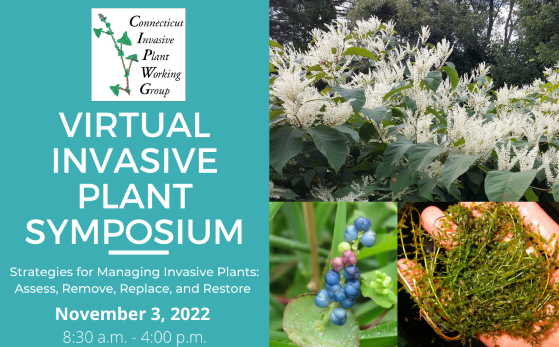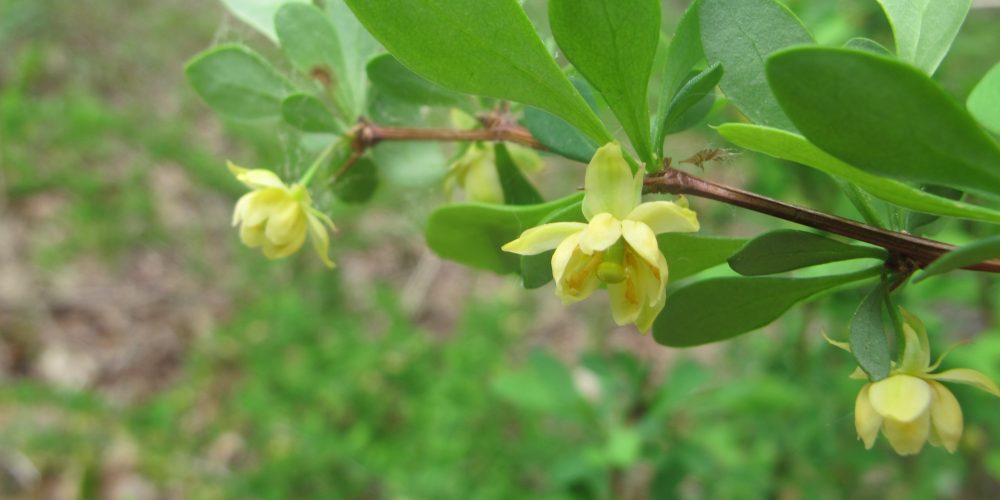 Japanese barberry (Berberis thunbergii)
Japanese barberry (Berberis thunbergii)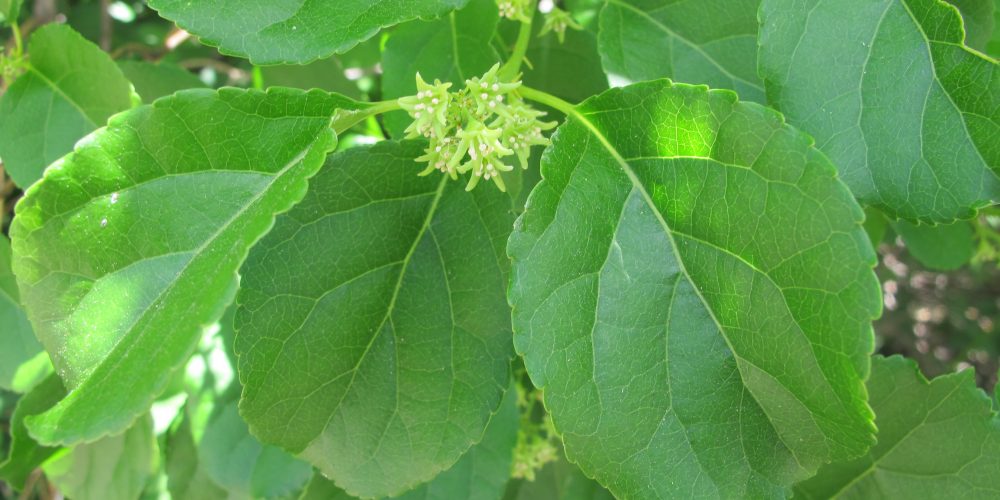 Oriental bittersweet (Celastrus orbiculatus)
Oriental bittersweet (Celastrus orbiculatus)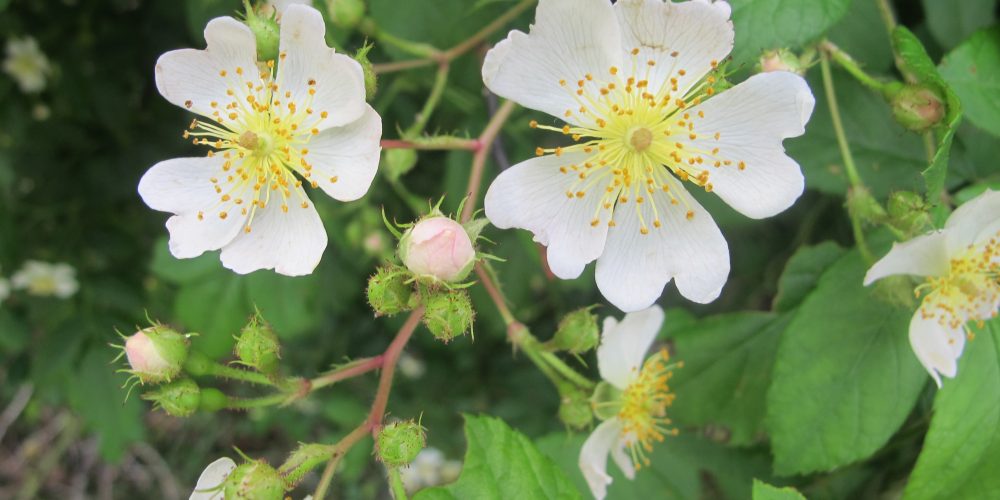 Multiflora rose (Rosa multiflora)
Multiflora rose (Rosa multiflora)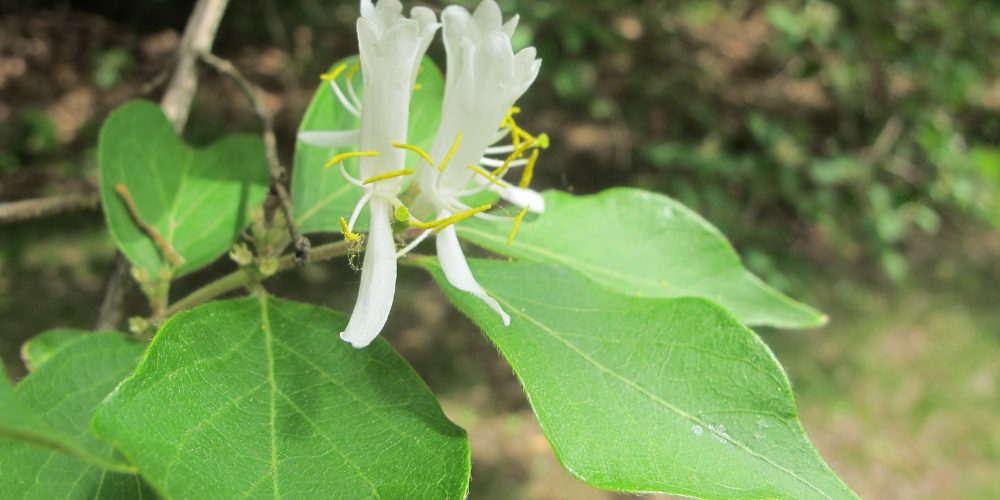 Bush honeysuckle (Lonicera spp.)
Bush honeysuckle (Lonicera spp.)
Good News on Recent Invasive Plant Legislation!
Over the past year, a CIPWG subcommittee reviewed the CIPWG research list (plants that were being studied to determine invasive potential) and made recommendations to the Invasive Plants Council (IPC) regarding plants that should be moved to the invasive plant list. The IPC is the state-mandated body that recommends changes or updates in invasive species legislation to the CT legislature through the Environment Committee (EC).
In the IPC annual report, the IPC made recommendations to the EC. The EC followed the suggestions of the IPC and submitted a bill (HB 5225) to the legislature. It passed through the house and senate and the governor signed the bill into law this Tuesday (5/14).
The bill includes:
- Callery pear (Pyrus calleryana) will be added to the CT invasive plant list with a 3-year phase out period; it will be prohibited from sale as of October 2027.
- Quackgrass (Elymus repens) and Japanese angelica tree (Aralia elata) will be added to the invasive plant list and prohibited from sale as of October 2024.
- Japanese wisteria (Wisteria floribunda) and Chinese wisteria (Wisteria sinensis) will be added to the potentially invasive plant list and prohibited from sale as of October 2024.
- Porcelainberry (Ampelopsis brevipedunculata) and Mugwort (Artemisia vulgaris), which are already on the invasive plant list, will be added to the prohibited from sale list as of October 2024.
You can read the text of the bill, view testimony, votes of CT legislators, and more at cga.ct.gov.
We, the CIPWG co-chairs, are thrilled to see CIPWG, the IPC, and the Environment Committee work together in such an effective way to make progress on regulation of invasive plant species in CT.
We are grateful for the efforts of CIPWG members, the IPC, and the Environment Committee for the continued effort to take meaningful steps to regulate invasive plant species in our state.
We are in the process of updating the Invasive Species list with the changing regulations and will keep posted on those updates as they are completed.
Vickie Wallace, Rose Hiskes, and Emmett Varricchio, CIPWG Co-chairs
info@cipwg.org
Read CIPWG’s 2023 Annual Report
Thank you for reporting your 2023 Invasive Plant Activity!
The CIPWG 2023 Annual Report is a compilation of reported invasive plant management and education activity for the 2023 year.
Read the 2023 CIPWG report HERE
The report details the invasive plant management and educational activities that occurred in over 60 CT towns throughout the year. At least 5,345 citizens directly and actively participated in the reported activities. Many (at least 4,670) were reached indirectly through articles, YouTube videos, social media, fact sheets, signs, and other educational mediums. A minimum of 30,765 hours were directly invested in invasive plant management, during intensive invasive plant training sessions and management activities, as well as educational outreach. A minimum of 5,300 hours were provided indirectly as citizens engaged in educational efforts and learned from videos, articles, and fact sheets.
The Connecticut Invasive Plant Working Group maintains the following subcommittees:
- Education and Outreach (educational outreach about invasive species and their alternatives)
- CIPWG display was used at 5 events around the state in 2023.
- Outdoor Educators held 6 free “Walk, Talk and Cut” events in 5 of Connecticut’s counties.
- 74 people attended these events.
- Management (develop and disseminate information on invasive plant control options)
- Native Alternatives (explore and promote use of native plant species as alternatives to invasives)
- Two publications were released in 2023 and are available on the CIPWG website: Pollinators in Gardens & Meadows and Deer Resistant Native Perennials.
- Research List Review
- Met 5 times in 2023 to review CIPWG’s Research Plant List.
- Made recommendations to the CIPWG Steering Committee regarding plants that should be recommended to the Invasive Plant Council for addition to the CT Invasive Plant list.
- Developed protocol for annual review of the Research List.
CIPWG provides a List of Speakers who are available to give presentations on many invasive plant-related topics, including identification, control, and non-invasive alternatives. Since 2002, CIPWG has hosted biennial invasive plant symposia. Symposium 2022 information is available on the CIPWG website. Planning for the 2024 biennial CIPWG symposium has begun.
Report your 2024 Invasive Plant Activity
Thank you to all of you who are leading invasive plant management activities, workshops, webinars, or helping in any way to manage invasives!
We are collecting reports of your activities and events. We will ask you to report your activity several times over the course of the year to better capture our impact!
Please report your work for any activities that have occurred so far in 2024 - lectures, invasive plant management events, educational outreach, workshops taught, etc.
Click here to complete the quick ONLINE survey!
If you have lead many events/workshops/activities and it is easier for you to put the information in a word document, please:
Click here to download the WORD VERSION Bulk Report Form
Return the document to alyssa.siegel-miles@uconn.edu. (Anyone can use this form if it is preferred over the online report form.) Please TYPE your responses.
For questions or assistance, please contact alyssa.siegel-miles@uconn.edu.
November 3, 2022 CIPWG Symposium
The 2022 CIPWG Symposium was held virtually on Thursday, November 3, 2022. Thank you to everyone who presented, attended, and helped make the 2022 Symposium a success!
Visit the 2022 CIPWG Symposium EVENT WEBPAGE for more information and program handouts.
National Invasive Species Awareness Week
Everyone can play a role in managing invasive species. Here are some ways you can help!
LEARN ABOUT INVASIVE SPECIES AND TAKE ACTION TO REDUCE/PREVENT THEIR SPREAD
- CIPWG Invasive Plant Management Calendar (powerpoint presentation) (s.uconn.CIPWGinvasiveplantcalendar)
- UConn Extension’s 2-page Invasive Plant Fact Sheets (ipm.cahnr.uconn.edu/invasive-species-publications)
- Spotted lanternfly is one of our newest invasive species reported in CT. Now is a great time to learn about this pest. Learn about spotted lanternfly at: CAES Spotted Lanternfly Information.
o Spotted Lanternfly Management for Landscape Professionals
o Spotted Lanternfly Management for Residents
- North American Invasive Species Management Association (NAISMA) hosts educational webinars on priority invasive species issues the 3rd Wednesday of each month. Get more information and register on the NISAW events page.
CHOOSE NATIVE SPECIES
If you’re planning to plant in your yard this year, choose native species whenever possible. For information and resources, refer to:
MORE TIPS FROM PLAY CLEAN GO (playcleango.org) for preventing the spread of invasive species when recreating in the outdoors:
- REMOVE plants, animals and mud from boots, gear, pets, and vehicle.
- CLEAN your gear before entering and leaving the recreation site.
- STAY on designated roads and trails.
- USE CERTIFIED or local firewood and hay.
Porcelainberry Update
Presented by Rose Hiskes at the CACIWC Annual Meeting. Click here to view.
News
- Good News on Recent Invasive Plant Legislation May 16, 2024
- Read CIPWG’s 2023 Annual Report January 29, 2024
- New Native Alternative Publications by CIPWG October 13, 2023
Popular Downloads:
Get Involved:
About this Site
The CONNECTICUT INVASIVE PLANT WORKING GROUP (CIPWG) is a consortium of individuals, organizations, and agencies concerned with invasive plant issues.
Contact Us
| E-mail: | info@cipwg.org |
|---|---|
| Address: | Connecticut Invasive Plant Working Group UConn Extension 562 New London Tpke. Norwich, Connecticut 06360 |
